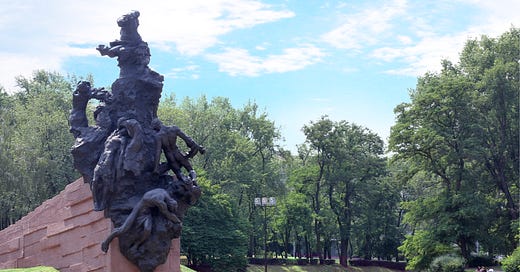Antisocialism and the rehabilitation of fascism
This isn't being driven by Ukrainian workers - it's coming from the international ruling class.
The overwhelming majority of Ukrainians would, in the United States, fall on a political spectrum ranging from radical left (owing to the persisting legacy of Soviet communism) to a kind of banal Eastern Orthodox conservativism. Fascism, correctly understood as a radical eliminationist and expansionist ultranationalism that emerges when the middle class…
Keep reading with a 7-day free trial
Subscribe to Carl Beijer to keep reading this post and get 7 days of free access to the full post archives.





